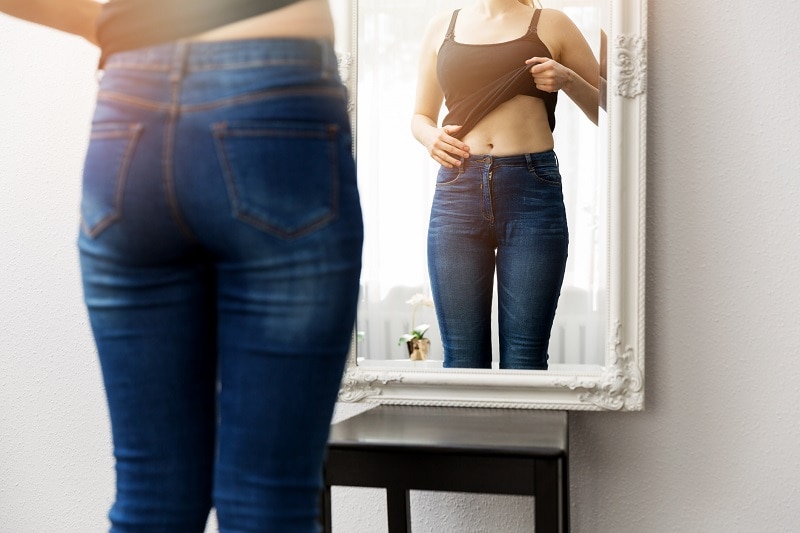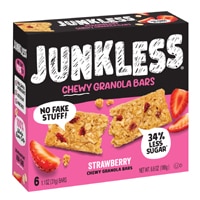[vc_row][vc_column][vc_column_text]Diets can be confusing, overwhelming and difficult to follow. Yet what many people may not realize is that even if they do not succumb to traditional dieting, they have been influenced by a multitude of messages about food and body image by something known as
diet culture.
No matter how you were raised, you have been exposed to diet culture in some form or another if you grew up in the United States. Diet culture has become a part of our society, and its messages can sneak up on you without you even realizing it.
Since diet culture can have some major downsides, it's important to become familiar with what it is, how it may be influencing you and what you can do about it.

Diet Culture: How to Spot it in Your Life
Diet culture refers to a set of social beliefs that emphasizes thinness and attaches an individual's eating habits to personal value. It prioritizes physical appearance over health and emotional/mental wellbeing.
While the beliefs and messages of diet culture can appear to be things that may make you feel better about yourself or improve your health, they can do just the opposite. Diet culture turns food, which is something that is supposed to be enjoyed and used to nourish your body, into something to be feared. It inflicts guilt and implies that eating should be done by a set of rules rather than by listening to your own body.
Because of its promotion and idealization of thin bodies, it can also cause you to become extremely dissatisfied with your body. Diet culture can affect anyone, though women and adolescents tend to be the most susceptible to its messages.
Examples of diet culture messaging include:
- Labeling foods, such as referring to them as “good” or “bad,” “clean” or “dirty”
- Associating food groups or specific nutrients with weight gain
- Associating specific foods with morality, which may make you feel like a better or worse person if you eat a certain way
- Encourages cutting out entire food groups
- Makes you believe you must follow a strict diet or eating style in order to be healthy
- Inflicting fear or guilt towards certain foods and nutrients
- Implying that your worth is tied to your weight or body size
- Causes you to talk or think negatively about yourself and your body based on how you eat and look (thus inflicting shame)
The rising use of social media has further reinforced and helped spread diet cultures messages. It does so by promoting vanity and allowing ordinary people to influence their followers’ beliefs about health and body image, even if they have no professional expertise to back up their claims. According to research in the
Journal of Aesthetic Nursing, many of the images used in both mass media and social media have been modified to portray unrealistic forms of so-called beauty. This often causes members of the general public to try to manipulate their bodies and digitally enhance their own images to try to fulfill these unfeasible standards.
How can diet culture be harmful?
Unfortunately, diet culture has progressed into mainstream society so much that an average person may not even recognize it. Because of diet culture, many people may engage in harmful eating habits or hold negative beliefs about food or their bodies, all the while thinking they are doing something good for themselves.
Some of the harmful consequences of diet culture include:
What can you do instead?
Unfortunately, it is nearly impossible to avoid exposure to diet culture, since it can be found nearly everywhere. Nonetheless, by familiarizing its messages, you can train yourself to fight against it and to believe other things.
Here are some tips:
- Become an intuitive eater. This is a non-diet approach to health that can help build trust in your body and heal your relationship to food.
- Familiarize yourself with the anti-diet movement. This movement is specifically designed to fight against diet culture. It emphasizes viewing your body as unique and worthy of proper nourishment, respect and love, regardless of its size, the eating style you engage in, or even the health conditions you’re living with.
- Recognize that there is no one-size-fits-all when it comes to health. Being thin does not automatically mean being healthy, and being overweight does not always equal being unhealthy. In addition, there are many different eating habits that can all lead to good health. Believing this can help loosen the temptation to follow diet culture.
- Be intentional with the words you use towards food and body size. Let go of labeling foods, and begin to speak more kindly about yours and others bodies. In general, it is usually better to avoid weight talk and instead focus on personal qualities, such as kindness, generosity or being a hard worker.
- Seek professional help. If you have been negatively affected by diet culture messages and are struggling to cope, it is important to seek professional help. Working with a counselor, therapist or registered dietitian trained in disordered eating or eating disorders can help you develop healthier beliefs about yourself, food, and your body.
Food should not be feared. While it can be beneficial to learn about nutrition and healthy ways to fuel your body, you should not allow other people, including social media influencers, family and friends, to dictate how you should or shouldn’t eat. Instead, it is best to focus on a balance of all foods that you tolerate and enjoy, and not let diet culture get in your way.[/vc_column_text][/vc_column][/vc_row][vc_row][vc_column][vc_text_separator title="Featured Products" border_width="2"][vc_row_inner equal_height="yes" content_placement="middle" gap="35"][vc_column_inner width="1/3"][vc_single_image image="167713" img_size="full" alignment="center" onclick="custom_link" img_link_target="_blank" css=".vc_custom_1689252202217{padding-right: 7% !important;padding-left: 7% !important;}" link="https://www.vitacost.com/acappella-knotty-grahams-cookies-n-cream"][/vc_column_inner][vc_column_inner width="1/3"][vc_single_image image="167714" img_size="full" alignment="center" onclick="custom_link" img_link_target="_blank" css=".vc_custom_1689252223553{padding-right: 7% !important;padding-left: 7% !important;}" link="https://www.vitacost.com/almond-breeze-almond-milk-chocolate"][/vc_column_inner][vc_column_inner width="1/3"][vc_single_image image="167715" img_size="full" alignment="center" onclick="custom_link" img_link_target="_blank" css=".vc_custom_1689252238129{padding-right: 7% !important;padding-left: 7% !important;}" link="https://www.vitacost.com/nature-nates-natural-raw-unfiltered-honey-and-comb"][/vc_column_inner][/vc_row_inner][/vc_column][/vc_row]




